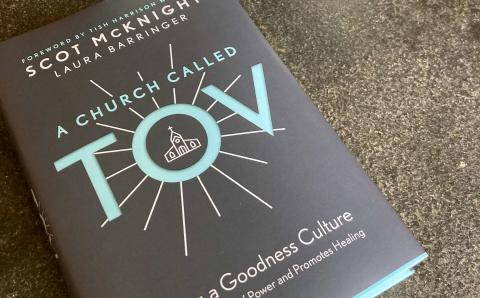Many Canadian CRC leaders are grieving the dismissal of Darren Roorda as Canadian Ministries director (see p. 16). Roorda was beloved by many. I pray for God’s providence and blessing for him and his family as they face the future.
Unfortunately, we have been here before. A letter of lament by nine Canadian ministry leaders, including two former Canadian Ministries directors, points out that three other people in the position left “in deep frustration with the CRCNA administrative structures.” It asks for a third party to investigate “this dysfunctional pattern of frustration.” As a Canadian, I get a sense of the concerns among Canadian CRC-ers.
I have two streams of thought flooding my head when it comes to the CRCNA’s binationality. The first concerns lingering and underlying fears. Secondly, I wonder about the dynamics of the cultural differences between Canada and the U.S. and how that relates to doing God’s mission in each country’s contexts.
It’s not like we haven’t studied this before. The Task Force Reviewing Structure and Culture’s (TFRSC) report to Synod 2013 (it also reported in 2012 and 2014) delved into issues of binationality among other things. It noted two fears that often are raised with binationality. First is the fear of separation or division into two denominations. This fear often “stifles space for legitimate differentiation.”
The second fear is the fear of one nation dominating the other, namely, that the U.S. side of the CRC, with its sheer number of churches and members, would dominate the Canadian side, calling all the shots in ministry decision-making. Canadians fear that the default unconscious mindset is that of the CRCNA as a U.S. denomination with a Canadian subsidiary rather than a partnership of two equals.
Even though that 2013 report named them, I wonder how much these fears have been openly acknowledged and transparently wrestled with by CRC leaders. I wonder how much of our various attempts at restructuring were subconsciously trying to allay these fears.
The fear of U.S. dominance leads to my second stream of thought: the cultural and contextual difference between Canada and the U.S. Generally, Canadians are far more likely than Americans to emphasize and maintain those differences.
Part of the Canadian identity narrative is that while America’s ideals from its Declaration of Independence are “life, liberty, and the pursuit of happiness,” Canada’s Fathers of Confederation preferred “peace, order, and good government.” Is that a fundamental difference in the two countries’ cultural DNAs?
The 2013 TFRSC report noted some more practical differences. For example, while immigration to the U.S. was dominated by working-class Hispanics and Latinos with Christian backgrounds, immigration to Canada was dominated by middle-class Asians and Africans with non-Christian backgrounds. Pursuing God’s mission in these two different contexts should not be a “one-size-fits-all” posture.
Ultimately, pursuing God’s mission in a faithful and contextualized way is the goal. And, logically, Canadians should have the freedom to self-determine the best ways to contextualize ministry in Canada, and vice-versa for Americans. This need for self-determination takes us back to those fears. For some, self-determination sounds too much like separation or division. For others, lack of self-determination implies U.S. dominance over Canada, rather than an equal partnership.
I don’t think this is an either-or polarity. We need to go beyond this narrow thinking. At the very least, it will be wise to revisit, in a deep engagement, that 2013 TFRSC report on binationality. If we don’t wrestle with these fears and differences, we likely will repeat this cycle of frustration.
About the Author
Shiao Chong is editor-in-chief of The Banner. He attends Fellowship Christian Reformed Church in Toronto, Ont.
Shiao Chong es el redactor jefe de The Banner. El asiste a Iglesia Comunidad Cristiana Reformada en Toronto, Ont.
시아오 총은 더 배너 (The Banner)의 편집장이다. 온타리오 주 토론토의 펠로우쉽 CRC에 출석한다.
You can follow him @shiaochong (Twitter) and @3dchristianity (Facebook).








